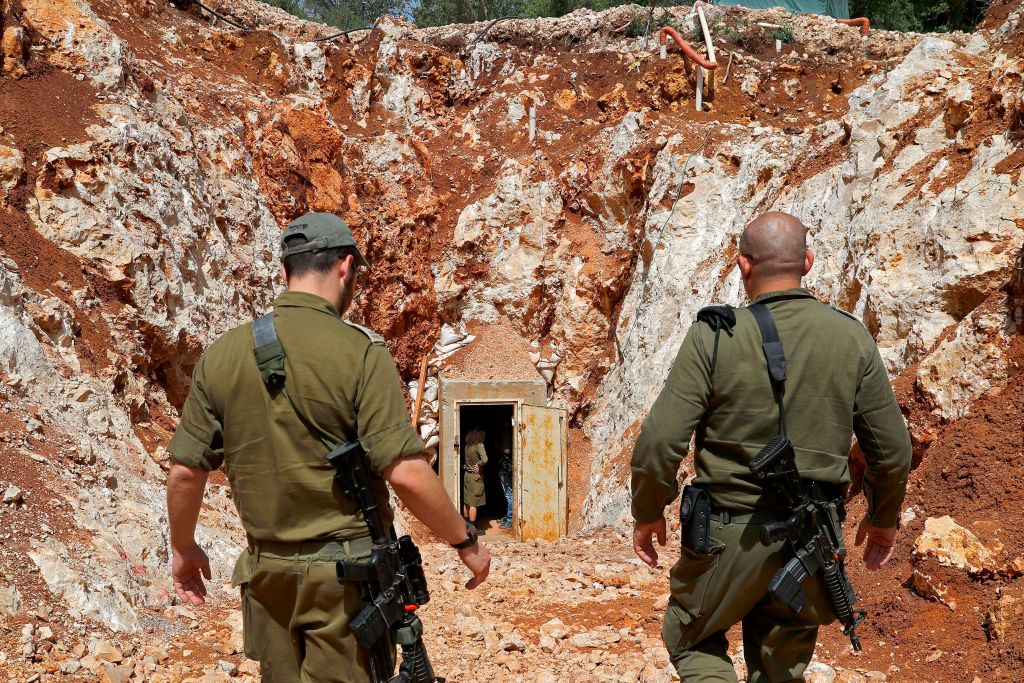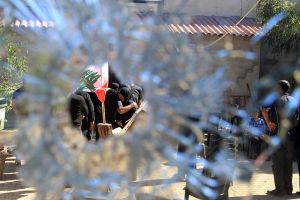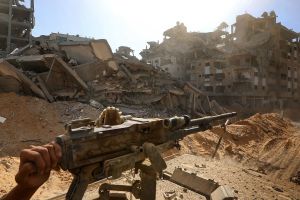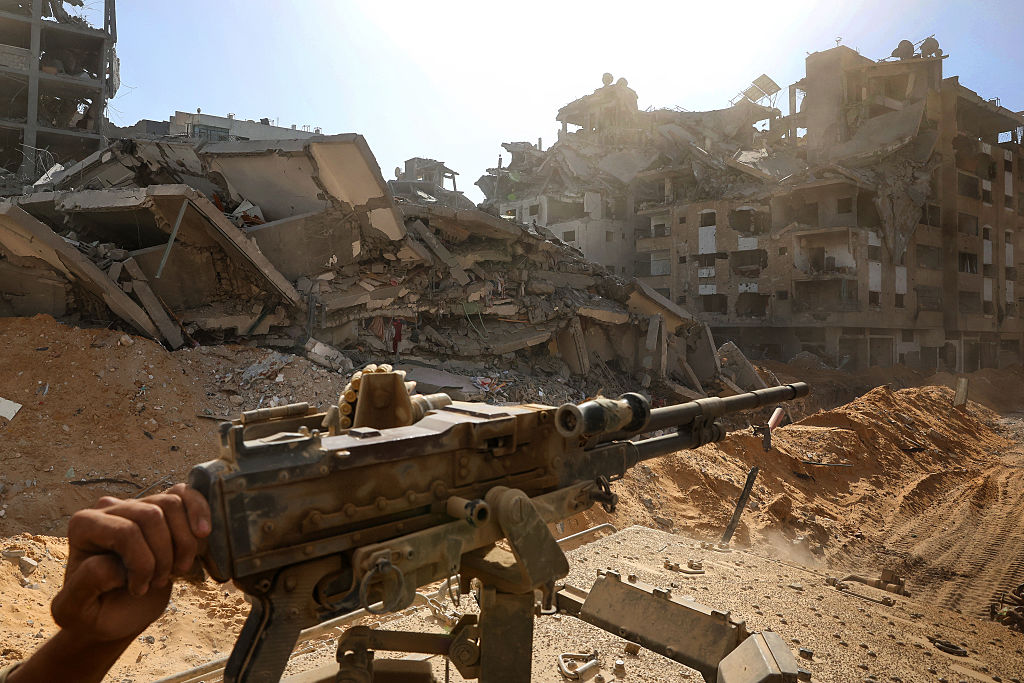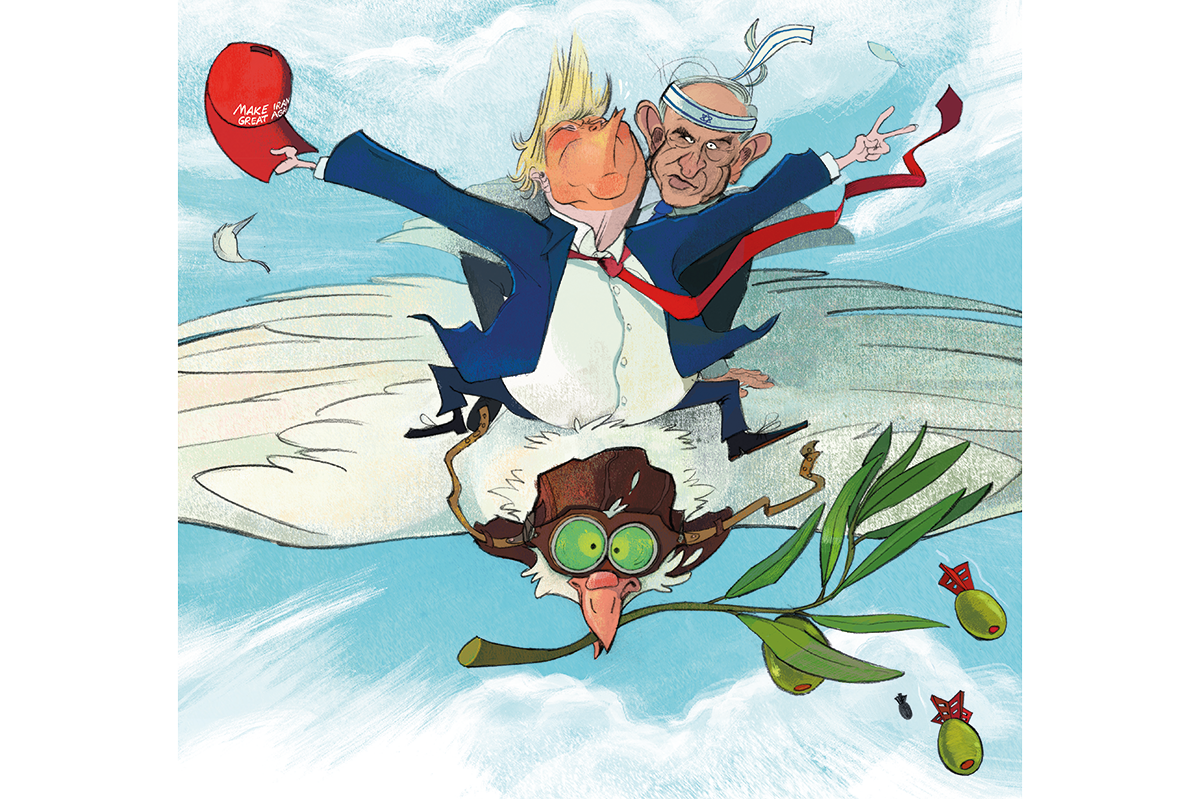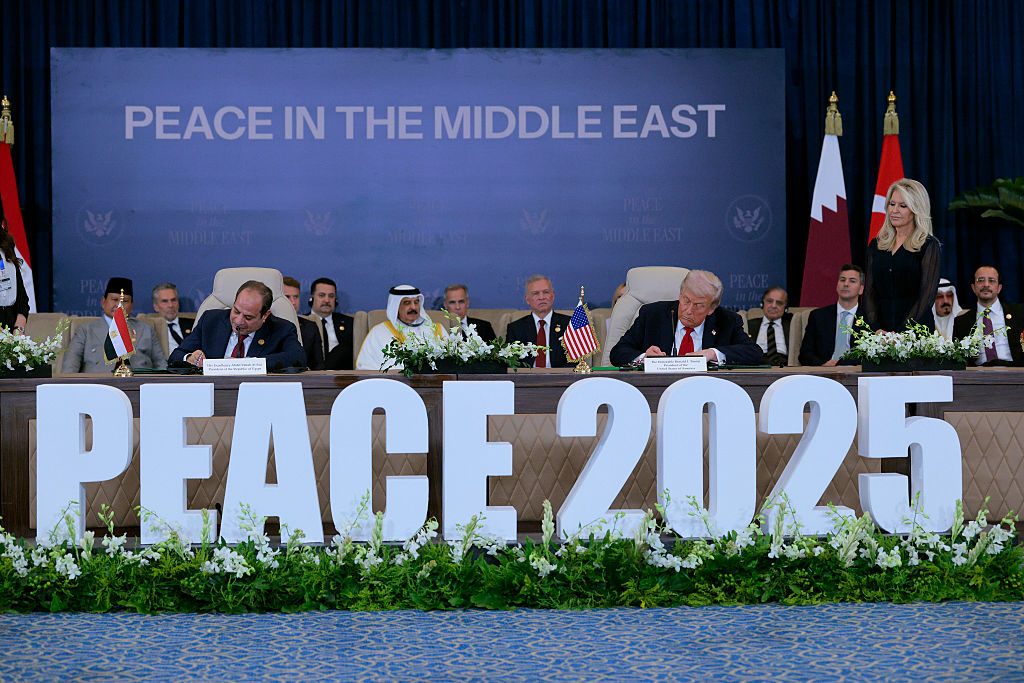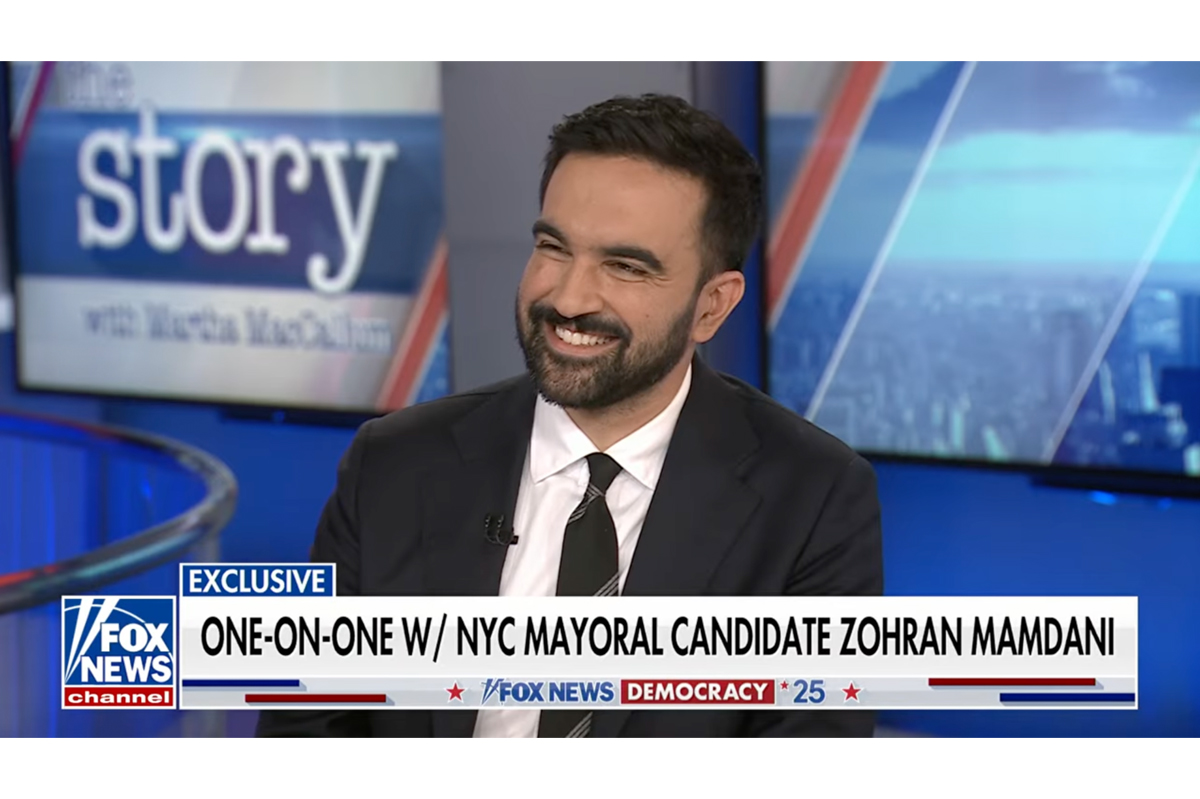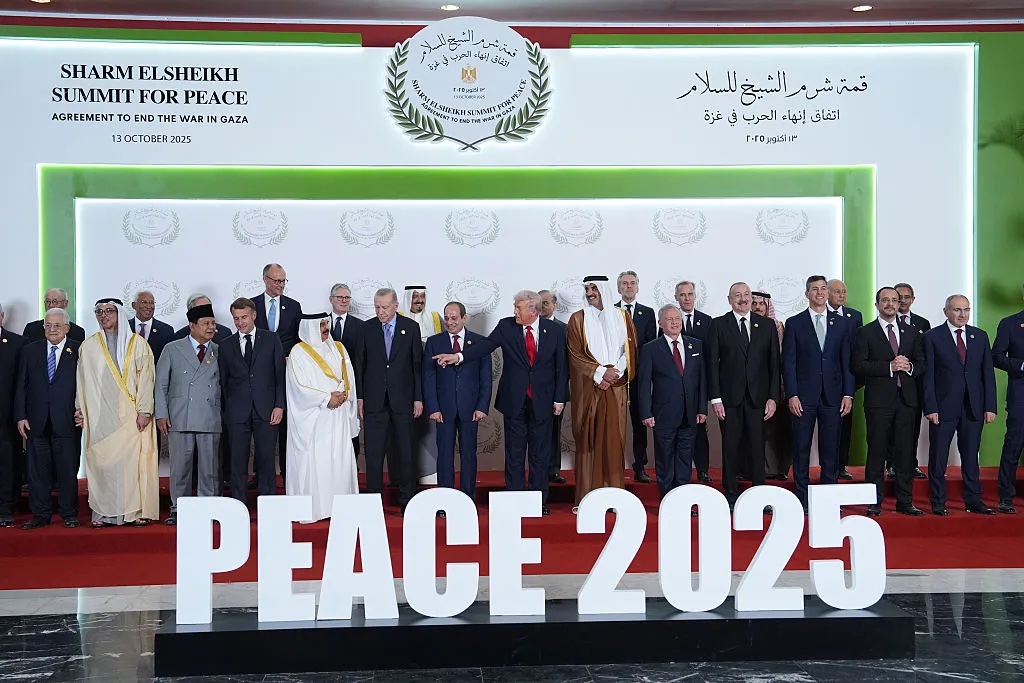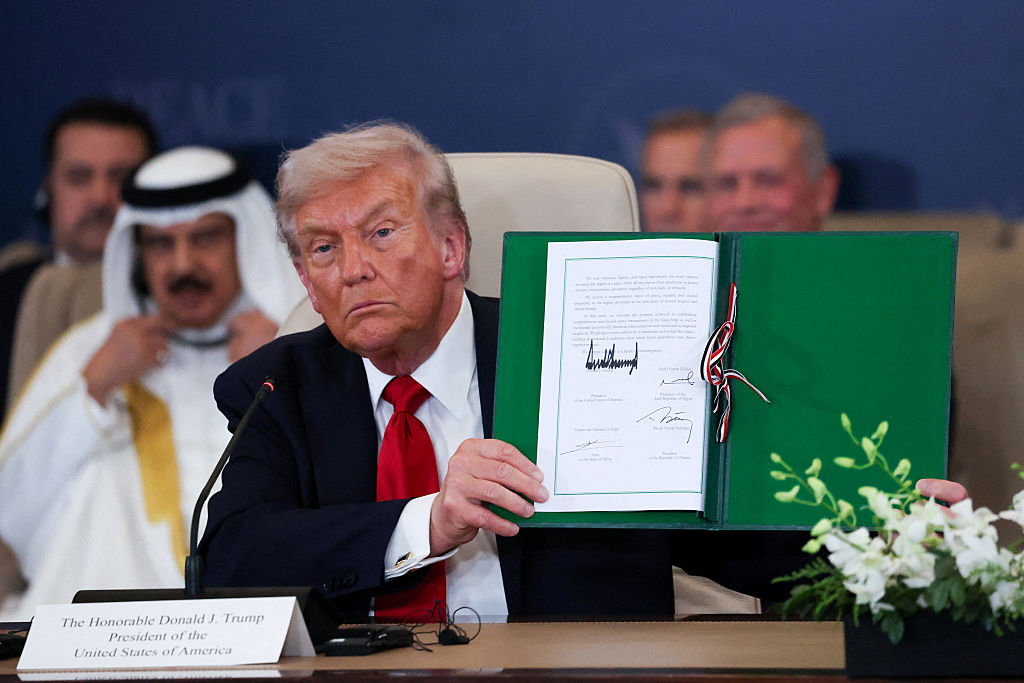Beirut
It seems that American planes were actually on their way to bomb Iranian targets last night when they were called back. That’s what the New York Times was told by a senior official in the administration, speaking anonymously of course. ‘Planes were in the air and ships were in position, but no missiles had been fired when word came to stand down.’ Was this President Trump or the Pentagon? It’s possible that the US military suddenly learned of a vulnerability in some part of their forces spread around the Middle East, in Bahrain, in Iraq, or in Syria, but then again, they’ve had time to prepare. More likely, this was Trump. From the Manhattan real estate business to international diplomacy, Trump’s tactic has always been to do something crazy at first so that, later, the other side is so grateful to find him reasonable in negotiations they cave and do a deal.
The US does have vulnerabilities in the Middle East, though. Shia militias know how to make roadside bombs that can pierce American armored vehicles, expertise they got from Tehran. The militias killed hundreds of American troops when the US occupied Iraq. There are only 5,000 troops there now, not the 150,000 of the occupation, but this is sure to be one place the Iranians hit back. The same for Syria, where there are still some 2,000 American military forces. Last month, a British general, Chris Ghika, the deputy commander of coalition forces in Iraq and Syria, could say he saw no increased Iranian threat on the ground in either place. Unsurprisingly, British officials, say it’s not ‘appropriate’ to use that assessment in the current situation.
Iran’s most powerful proxy in the region is Hezbollah, the Shiite militia in Lebanon. The Israelis worry that Iran will order it to attack them – an act that would consume the US in a new Middle East crisis. Hezbollah is said to have 150,000 missiles in southern Lebanon, pointed at Israel. The Israeli president, Reuven Rivlin, said this week: ‘We warn Hezbollah not to impose Iran’s agenda on Lebanon and we warn Lebanon not to be a base for attacks on Israel.’ He was speaking at a memorial ceremony for soldiers killed during Israel’s invasion of Lebanon in 1982. Rivlin said that Israelis had ‘never had anything against the Lebanese people’, but other Israeli leaders make no distinction between Hezbollah and Lebanon. The commander of Israel’s forces in the north, General Amir Baram, said: ‘[T]he nation of Lebanon will pay a heavy price in the next campaign for cooperating with Shiite terror.’
In the first instance, he was talking about the Shia population of southern Lebanon. The Israeli media quotes defense experts as saying that people living in some 200 villages are being ‘used as civilian shields for Hezbollah weaponry’. In the event of war, expect massive Israeli airstrikes across the south of Lebanon. Expect, too, a repeat of the ‘mistakes’ of 2006, when Israel fought the second of its wars with Lebanon. On July 30th 2006, an Israeli aircraft dropped a 2,000lb American MK84 bomb on a building in the village of Qana. The building collapsed, burying three extended families who had taken shelter in the basement. Twenty-eight people died, all civilians, the oldest 75, the youngest nine, who was one of 16 children killed. During a two-week period of the 2006 war, Human Rights Watch counted some 500 civilians killed by Israeli fire. There was ‘a systematic failure by the IDF [the Israeli Defence Force] to distinguish between combatants and civilians’. Israel denies that and less than a week after what Lebanese call the ‘Qana massacre’, Israeli jets destroyed what they had identified as rocket launchers in the very same village – making Israel’s point about Hezbollah firing from civilian areas.
Regardless of these arguments, a third war between Israel and Lebanon will be bloody for Lebanese civilians. Hezbollah is part of the Lebanese government and so people here expect airstrikes on government ministries in Beirut, on Lebanese army barracks, on roads and bridges, and on power stations – the whole country believes it will suffer, not just the south, not just territory loyal to Hezbollah. The devastating Israeli campaign that everyone expects may be one reason why Hezbollah will not fire its rockets. The Party of God – as its name translates – has already been drained by years of fighting in Syria. Despite the martyr posters tacked to lampposts in Shia neighborhoods, that war has not been popular. More casualties and more grieving families could weaken Hezbollah’s support. And it would be a mistake to think that Hezbollah is simply a cipher for Tehran. Whether there is a third Israeli Lebanese war may depend on how much pressure Iran exerts on its Lebanese ally, Hezbollah.
That is a question of American actions and Iranian intentions. What actions would be seen a red line by Iran? What would they consider a proportional response? There are some interesting answers to these questions in a piece in the National Interest by Michael Rubin, who was on the Iran desk at the Pentagon during the W. Bush administration. He writes that there are new commanders of the Islamic Revolutionary Guard Corps and specifically of the Islamic Revolutionary Guard Corps-Navy. In late 2017, there was also a change at the top of the Islamic Republic of Iran Navy. ‘When changes of command occur, especially in the Islamic Republic, the successors have to prove their revolutionary mettle.’ Rubin believes that, in the past, Iran’s leaders have shown themselves to be flexible when put under pressure. But he also thinks that the Islamic Republic is in its ‘death throes’ and that its leaders might try to survive by provoking a crisis that will rally Iranians around the flag.
If so, they have help. President Trump campaigned on a promise to scrap the Iran nuclear deal and did just that last year, imposing painful economic sanctions on Tehran. As Rubin says, the sanctions – on top of a desire for change after 40 years of rule by the clerics – may now threaten the regime’s survival. Iran’s response is to stockpile uranium, leading to condemnation from the US last week for abandoning the deal it had already abandoned. If Trump’s aim is ultimately to stop Iran from getting a nuclear weapon, that might now take more than just a few punitive strikes against the Iranian navy and Iranian government buildings. In 2010, I interviewed the Israeli air force officer who led Operation Babylon, the bombing raid by Israeli F-16s that destroyed Iraq’s nuclear reactor, at Osirak, in 1981. That officer, Colonel Ze’ev Raz, warned against expecting too much from airpower alone. Iran would probably require ground troops to finish the job, he said. ‘We can destroy some targets, cause some damage. But we can’t stop the project [if Iran is intent on pursuing it].’
Is President Trump prepared to occupy another country in the Middle East, to wage what his critics fear will be another ‘forever war’? His national security adviser, John Bolton – an Iran hawk – has one ear; as Freddy Gray reports, the Fox presenter Tucker Carlson – who wants no more foreign wars – has the other. We don’t know if the decision to call back the US bombers last night was a result of the push and pull between these two – or if this was Trump’s plan all along. He may believe that by threatening to attack, he will get the Iranians to cave and there’ll be a new, better nuclear deal. Trump once said: ‘I’m a really great negotiator…Deals are my art form.’ Peace in the Middle East may now depend on whether the president can live up to his own assessment of his abilities.
Paul Wood is a BBC correspondent



